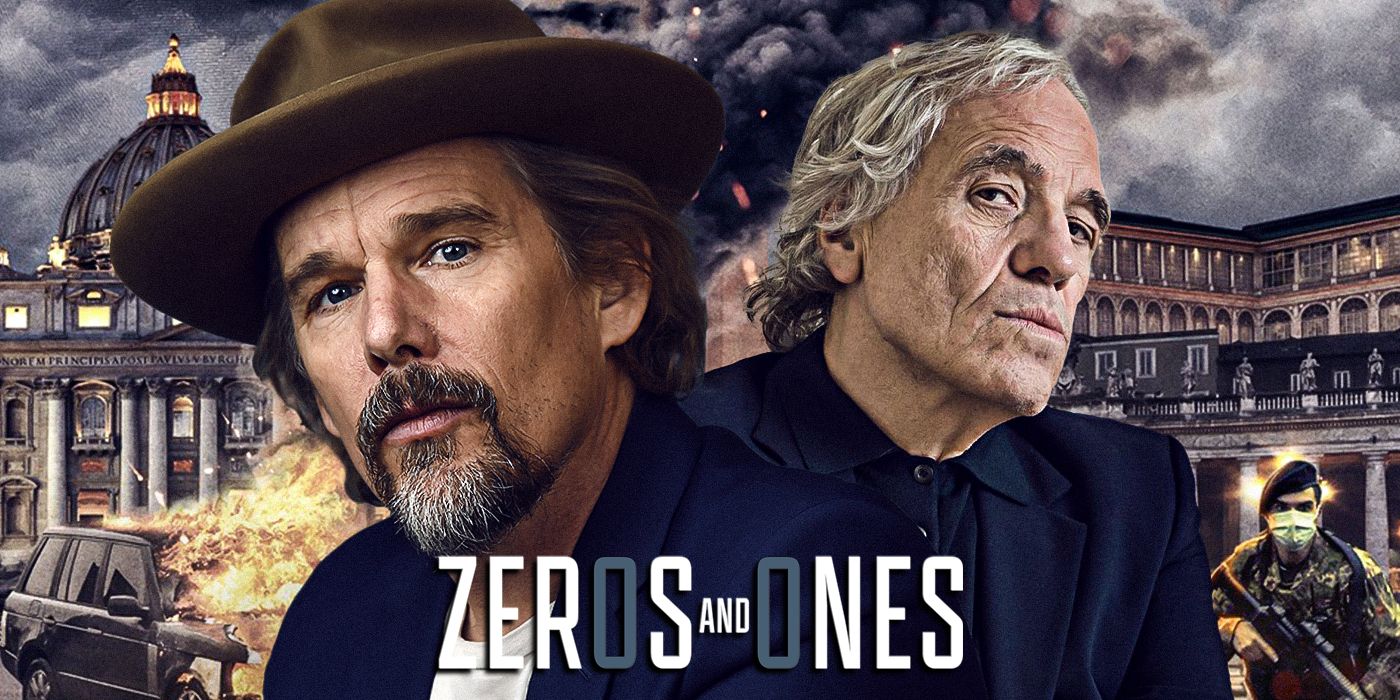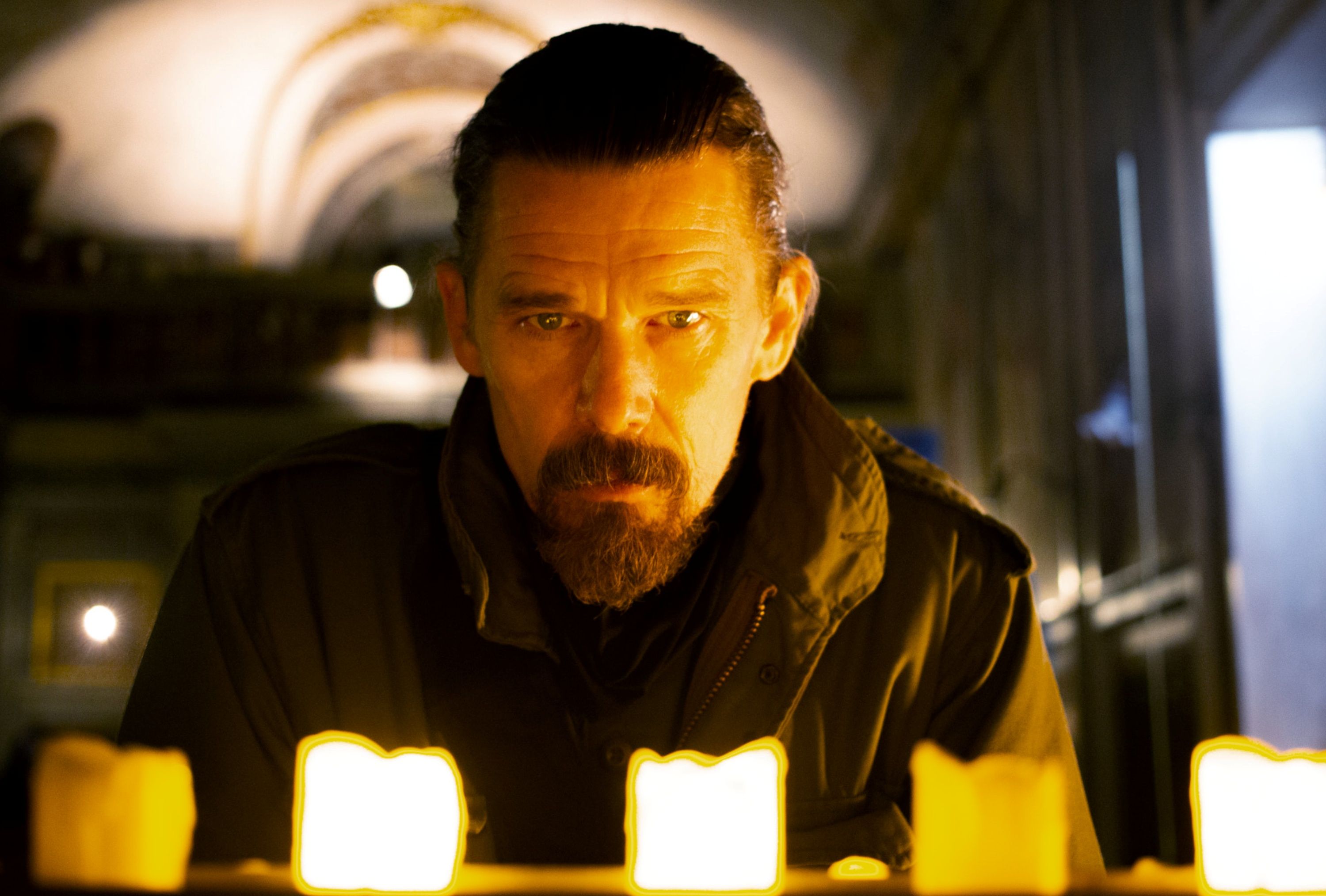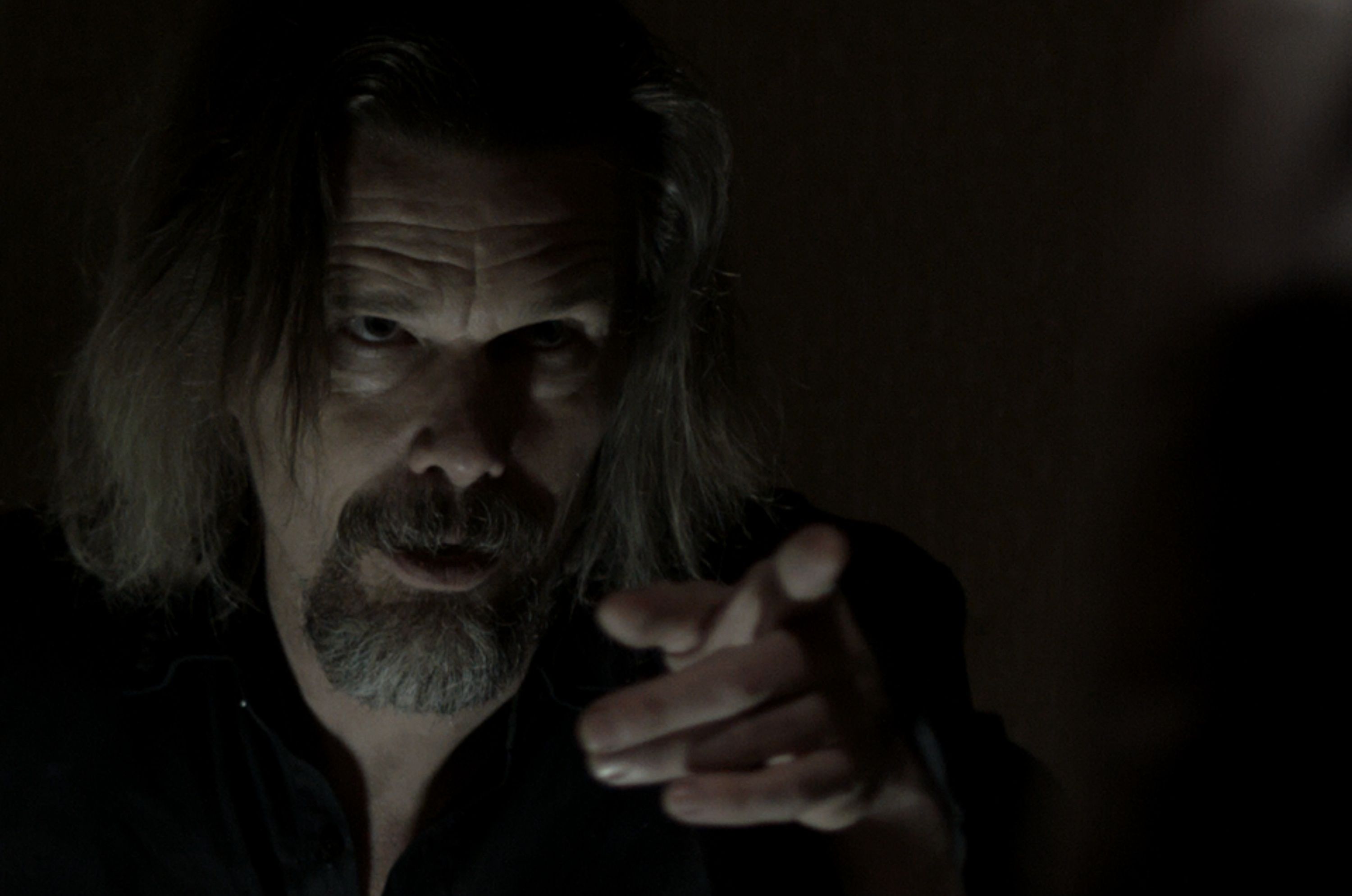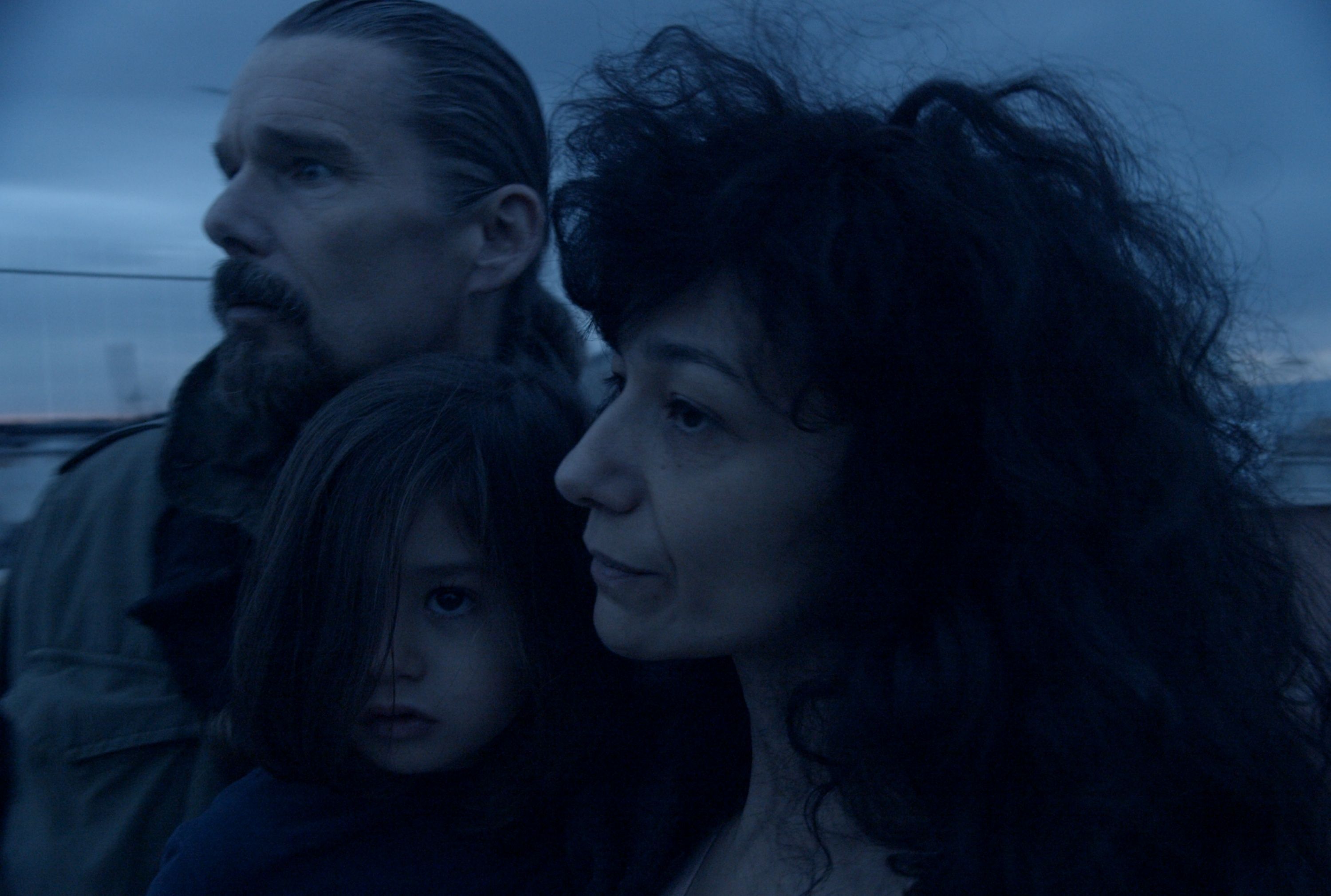From writer/director Abel Ferrara (Bad Lieutenant), the political thriller Zeros and Ones is set in Italy and follows a soldier (Ethan Hawke), who comes to the pandemic city of Rome to stop a terrorist bombing. While there, he searches for information about his imprisoned revolutionary brother (also Hawke), unsure of whether he’s alive or dead, and hoping for anything that could help him stop the Vatican from being blown up.
During this interview with Collider, Hawke and Ferrara talked about how the actor came to bookend the film as himself and explaining his interest in the project, career evolution, how it’s possible to not understand something but still like it, shaping the film as they went along, the collaboration between actor and director, and that they hope to work together again.
Collider: First of all, I don’t know that I’ve ever watched a film where the star of the film provides commentary about why he decided to do the film, before it starts. I thought that was fascinating. How did that come about? What led to that decision?
ABEL FERRARA: When Ethan came to the project, there was no project, really. It was an idea. His desire to do it matched ours, so then there was a movie. The investors wanted something that they could sell. It was basically a selling tool, so I was a little hesitant to ask Ethan. But he came to Rome in the middle of a pandemic and he did it. He knows the game. With us, we use everything. It’s zeros and ones. We use paintings, we use clips, we use whatever is there, if we think it might work. It just seemed like a natural beginning to the movie.
We did it a little bit with Siberia, where Willem [Dafoe] did a voice-over. When I first pitched the film to him, he sent me an email, and miraculously, I kept it and it just popped up at the right moment. It was just his reaction to the idea, not even a script. And then, we were going to Cannes and they needed a clip for that, so I asked him, “Why are you playing the role?” Somehow that just worked at the beginning of the film. And this just worked, at the beginning.
We’re creating the movie, as we do it. As pandemic filmmakers, we go to so many remote festivals. So, a remote message from the director or the actors seemed very normal. The thing at the end, we did for a couple of reasons. I wanted to see how it would go. For me, in a lot of these movies or even in a play, unless it’s Shakespeare, I just want to see the acting at the front of the stage and look the people in the eye when they start talking. In this, [Ethan] is playing two characters and it was almost like I needed Ethan, one more time. I don’t know why. With a lot of my movies, there’s that moment when the actor is looking right in the lens and letting it rock. They forget the charade of the scene and all of the paraphernalia. I just wanted to hear him talk to me.
ETHAN HAWKE: As a student of theater, my whole life, that’s what Brecht was always trying to do. He was like, “Why are we pretending that we’re not in a theater? Why are we pretending this guy’s not an actor? I hate it! Let’s break all of the walls down and communicate with each other.” So, in some weird way, the way you use that is an extension of things that other artists have been thinking about too. There’s something really Brechtian or Goddard-esque that knocks you off balance and hopefully puts you in a position to absorb the film.
Ethan, in your introduction, you said that the most important aspect of your job is who you choose to work with. At what point in your career did that become a conscious priority for you? Was there a specific turning point where you realized you could make choices in that way?
HAWKE: It’s an evolution. At first, you’re just trying to stay alive and have a career at all. One of the things that’s really hard, in the life of an actor, is that, at first, you only get cast in parts you’re right for. You’re auditioning, and you audition for parts and people, but then this strange thing happens in the business of making movies, which is that, if you can help people get the money for the movie, they might wanna cast you in a part that you’re not even right for it. You have to start understanding that when you’re well cast, you can succeed, and when you’re not well cast, you can’t succeed. How do you put yourself in a position to play your best? It’s mutually beneficial. I say it like I’m doing something nice for somebody else, but the truth is that it’s doing something nice for me.
Good filmmakers know how to cast people and use them. When you’re working with really talented people, good things happen. It’s really not rocket science. I just wanna make interesting movies that are fun for the audience to talk about, and you wanna balance that. If you don’t do anything that’s commercial at all, people like Abel can’t hire you. Sometimes I’ll have a friend who’s a filmmaker that I really believe it, who gets really mad at me because I’m not available for this, that, and the other thing. You can’t be everybody to everybody, at all times. If I don’t do some commercial things that take up a ton of time, you would never come to me anyway. The only reason you’re coming to me is because I do this, and now you’re mad at because I’m busy. It’s about trying to find a sense of balance.
I admire Abel’s work. He came, in the heart of the pandemic, when nobody was sure what to do, or what the role of movies were, or if we could make movies. I wanted to make a movie and I wanted to work with Abel, for a couple of decades now, for crying out loud. It felt like an extension of our desire to go to war for what we believe in, and what we believe in is making movies. That’s how we stay alive. So, it just made sense.
I thought it was so interesting that you said you got this thing that “script” isn’t really the accurate term for and this movie doesn’t have a typical storytelling structure to it. You’ve also said that you didn’t understand a word of it, but that you liked it. Would you have just gone along with whatever Abel Ferrara wanted to make?
HAWKE: I meant what I said. You can not understand something and like it. I often see a painting and I don’t understand it, but I know that I like it. There are things Abel does that I might not be the right person for. If I don’t understand it and I don’t like it, I’m not gonna be a good bandmate. I’m gonna resist it the whole time because my body will resist it. It doesn’t matter what my mind is thinking. Abel and I had talked about doing movies, and every time it didn’t happen, for whatever reason, I always wished it had, so I was inclined to want to like it. But Abel and I are different people. There are lots of things that other actors would be better for than me.
This felt right, and you just follow your gut. I liked what he was thinking about. I liked the way it read. I don’t think the job of everything has to be understood. I think it’s one of the most annoying things, in most contemporary movies. I don’t understand my life at all, so why do I have to understand the two-hour narrative arc? I don’t understand a damn other thing that happens in my day, but I still enjoy it.
And in life you don’t have somebody explaining or giving exposition to try to explain to other people what’s happening.
HAWKE: Unfortunately, you do. You’ve got your parents trying to make sense of your life. You’ve got teachers, you’ve got politicians, and everybody’s telling you, all the time, what’s happening around you, and you don’t even know if they’re right.
Abel, you you’ve worked with three of my favorite actors, with Willem Dafoe, Harvey Keitel and Ethan Hawke, who are the type of performers that define actors to me because they seem like they’re no bullshit, straight to the point and ready to get to work, as actors. Did they feel similar to work with, in any way? Is your approach, as a filmmaker, different with every actor?
FERRARA: It’s different, every day and every moment. Talking about those three specific actors, it’s the approach to the work. I’m looking for the collaboration. I’m looking for the actor to come in and make sense of it. I’m looking for somebody who’s gonna be teaching us what we’ve got. We’re looking for that missing piece. At the end of the day, all of the dreams and aspirations are in the actor. When the camera is on, everybody else is behind the camera while he’s there. Granted, we roll in his reflection and he’s feeling us, even if we’re out of eyeline, and our energy is in him. He’s gonna have to find the moment of truth. He has to take everybody’s dream and everybody’s understanding and everybody’s nuance, and then that’s the movie. If you take any movie and you blow up a scene in close-ups, I’m sure the whole crew is being reflected in their eyes. That’s what it is. It’s about the collaboration.
Are you glad that you were able to make this film during the pandemic? Does it feel different, now that you can look back on it?
HAWKE: You can’t separate it. It’s cause and effect. The film would be different, if it wasn’t made in the pandemic. I think the film has been cooking in Abel’s mind for a long time, but the pandemic made it be born.
FERRARA: That’s exactly it. The fact is, we’re still in the middle of it. From the first moment of the reality of something like that, it was life-changing, the fear and the paranoia. It was severe.
Having had this experience, are you guys hoping to make a film together again?
HAWKE: I hope so.
FERRARA: He didn’t do anything to be fired for.
HAWKE: Abel works the way I love to work. It’s wonderful when you’re on a set and you feel like you’re not selling anything, you’re trying to communicate something. It’s a very different mindset, selling versus sharing. They’re all different people, but if you’re on set with Sydney Lamet, Paul Schrader or Richard Linklater, who are some of the best people I’ve worked with, you feel like you have a job to do. The job is really clear and it’s happening in this moment. It’s not about a later moment. It’s not about what anybody else thinks. It’s about what we think. We’re hunting for something together. When I get to do that, I love being an actor. When being an actor becomes something else, you can get resentful, you can get weird, or you can get neurotic. It’s really simple, when it’s at its best.
Zeros and Ones is available on Blu-ray and DVD.



.jpg)

